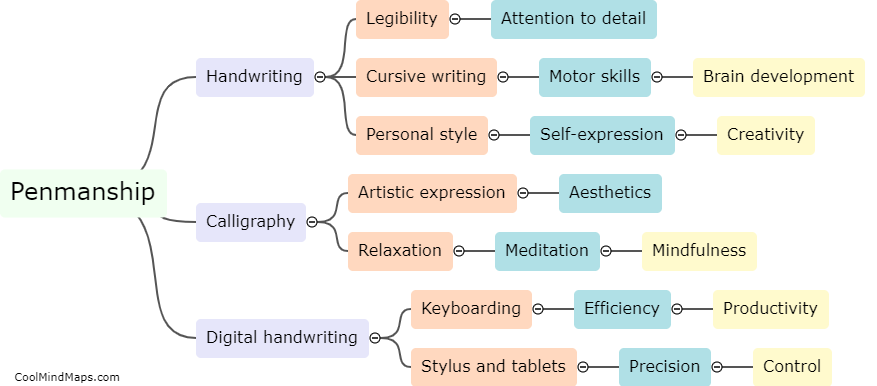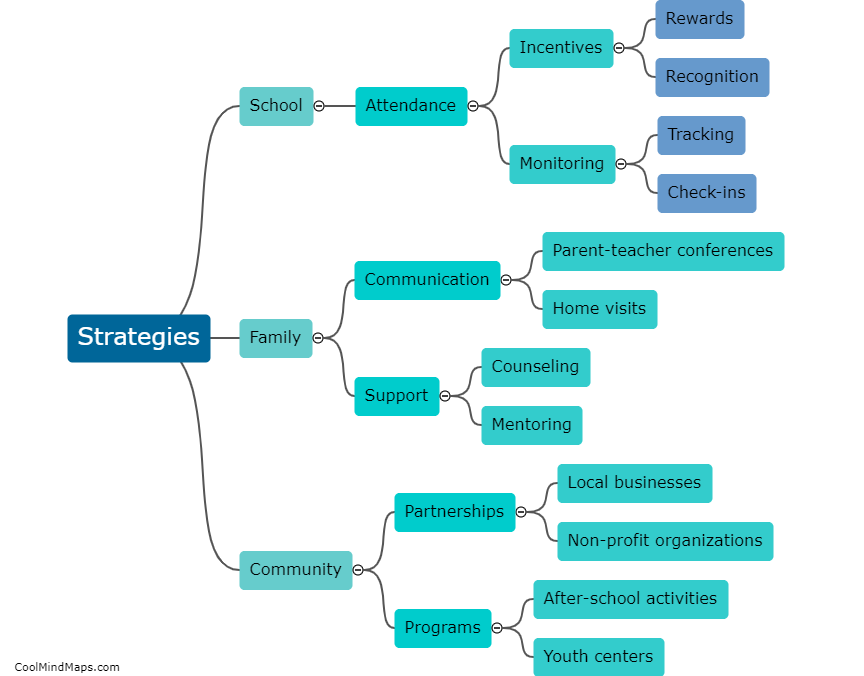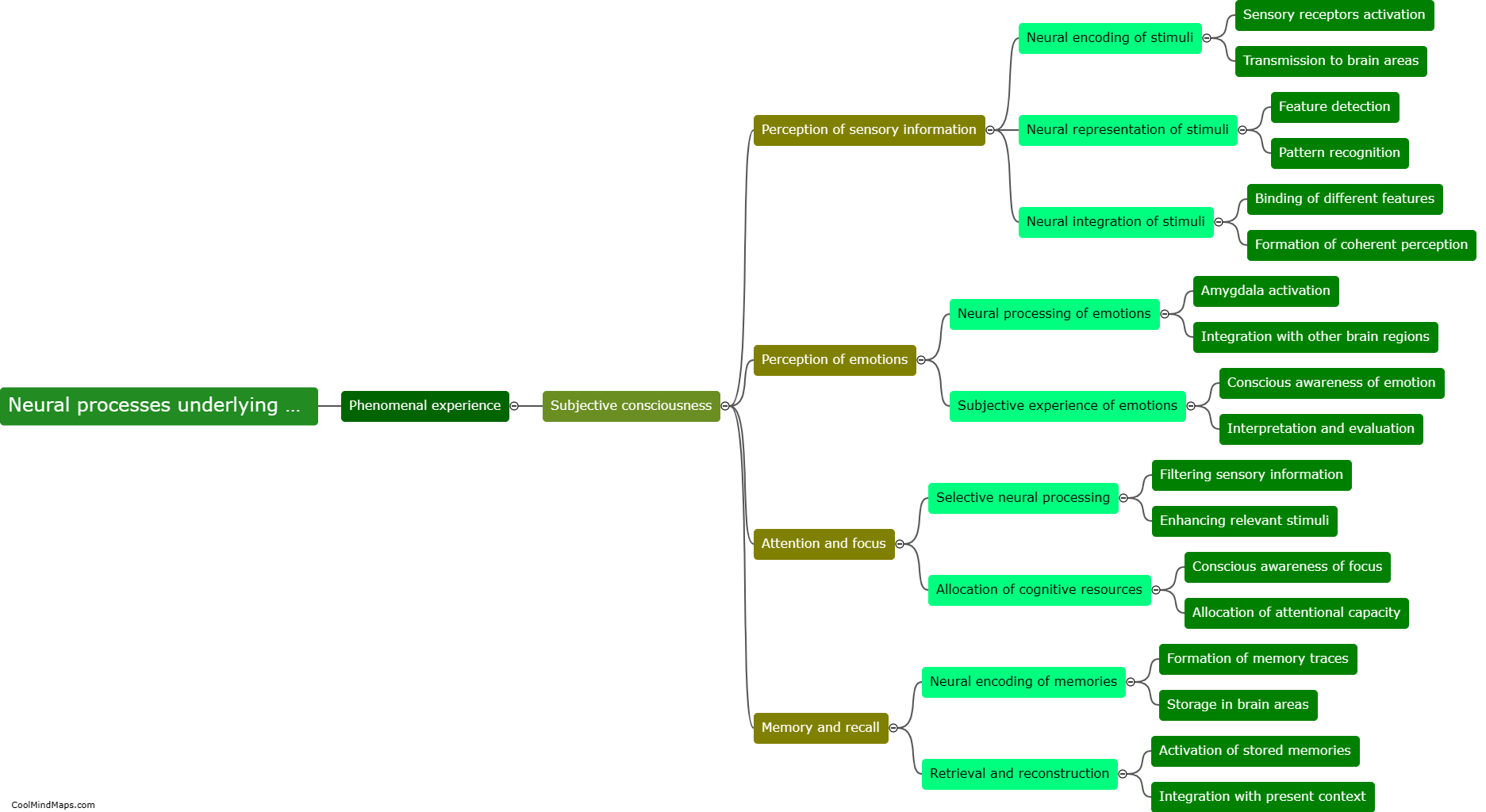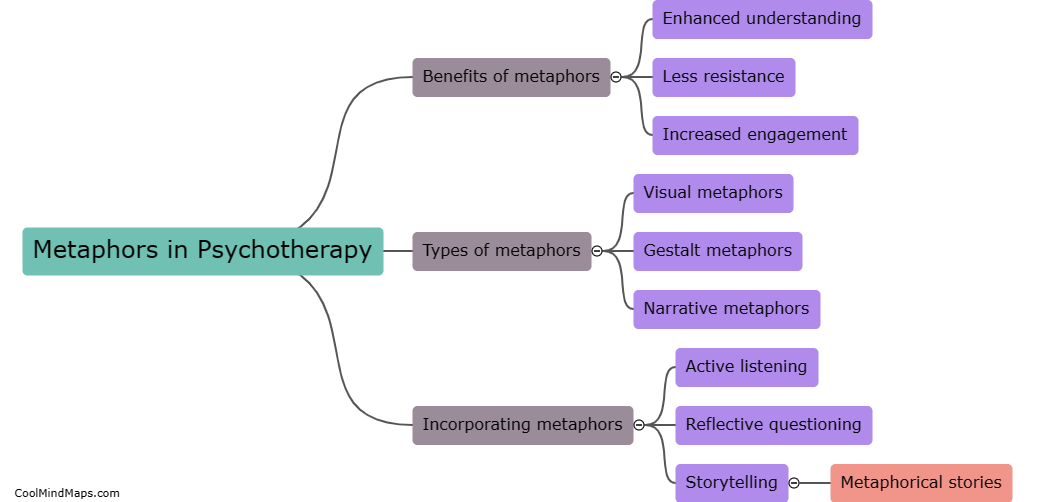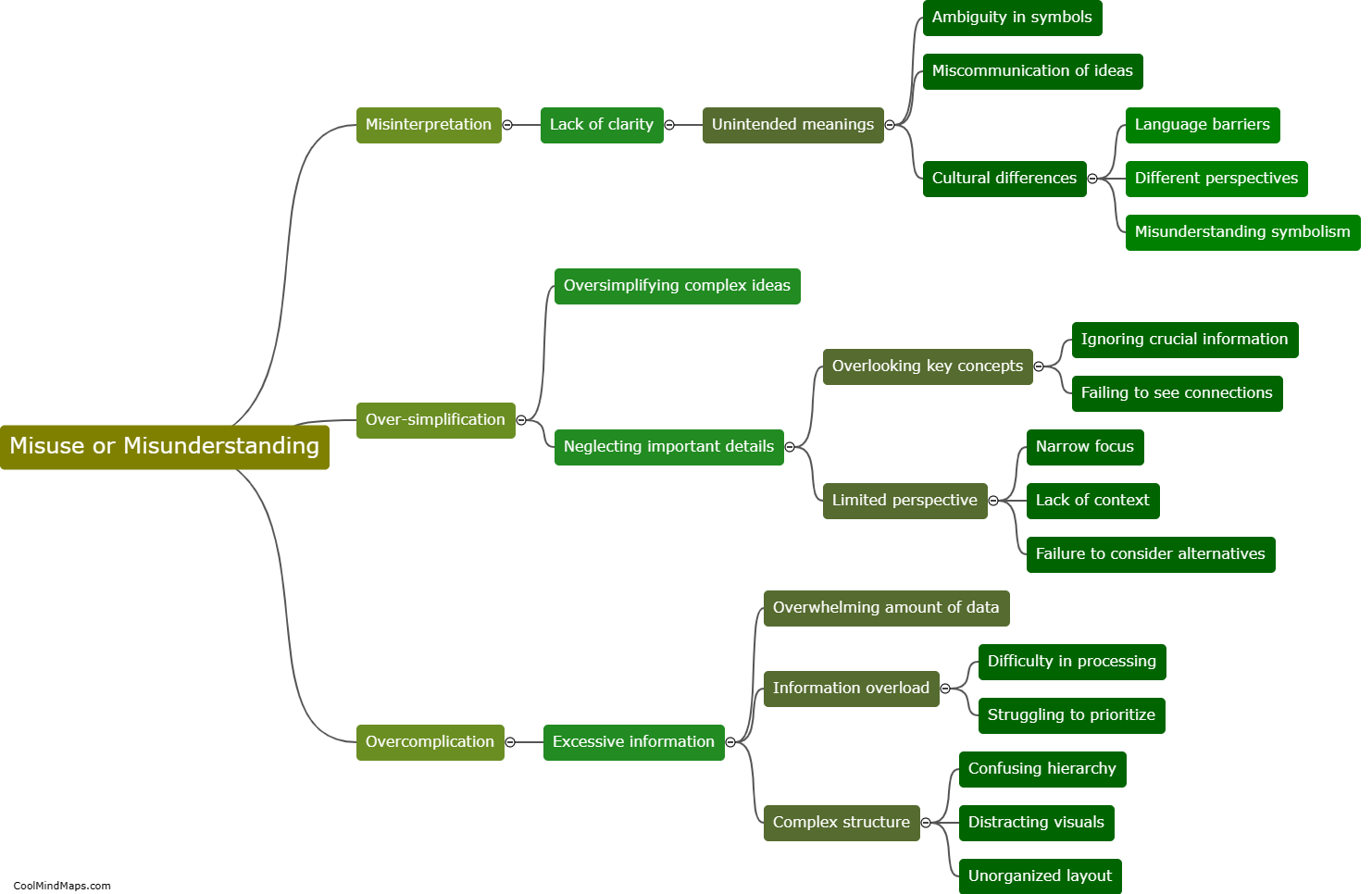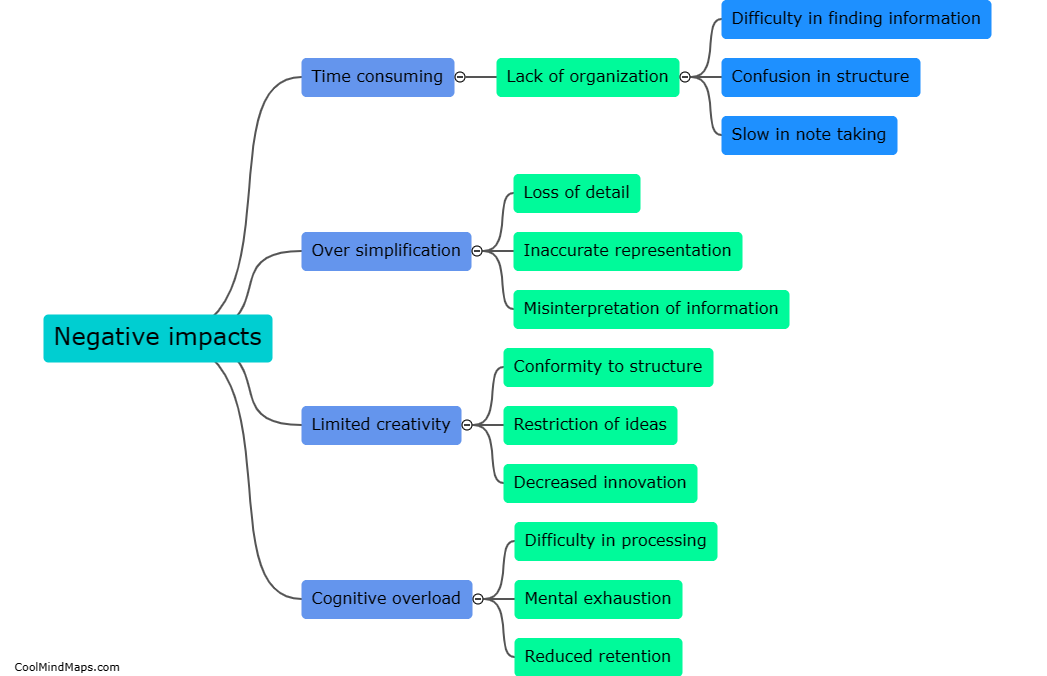What are the potential dangers of using mind maps?
While mind maps are generally regarded as effective tools for visualizing and organizing information, there are potential dangers that users should be aware of. One danger is the risk of oversimplification. Mind maps often condense complex ideas into simple, interconnected nodes, which can sometimes lead to a shallow understanding of the subject matter. Another danger is the potential for subjective bias. Mind maps are highly personal and reflective of the creator's thoughts, meaning that important information or alternative perspectives may be overlooked. Furthermore, mind maps can be overwhelming if they become too complex or cluttered, hindering effective communication and comprehension. Lastly, there is a risk of over-reliance on mind maps, potentially leading to a lack of critical thinking and dependency on the structure provided by the map. Despite these dangers, with awareness and careful consideration, mind maps can continue to be valuable tools in various fields.
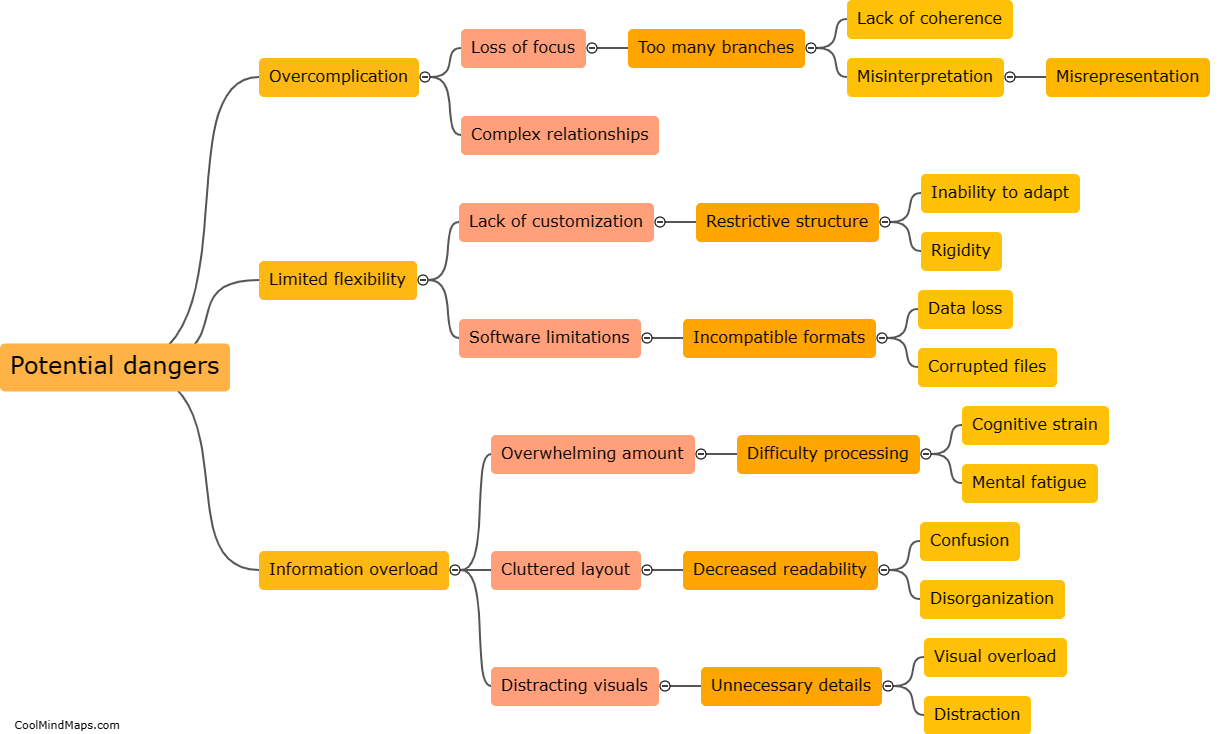
This mind map was published on 13 January 2024 and has been viewed 101 times.
